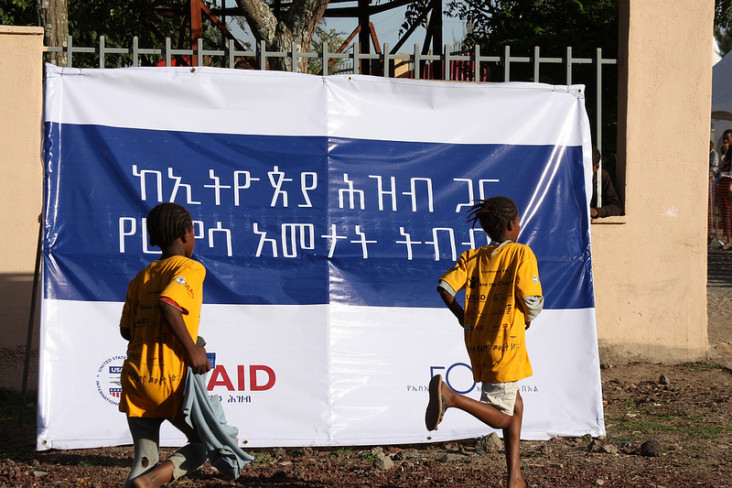
In 2010, USAID embarked on an ambitious reform agenda. USAID Forward is an effort to make the Agency more effective by changing the way we partner with others, embracing a spirit of innovation and strengthening the results of our work, saving money and reducing the need for U.S. assistance over time.
The reforms focus on three main areas:
Building Local Sustainability and Partnerships: We are working with more local organizations in developing countries to improve their capacity, build new effective and long-term partnerships, and reduce the need for foreign aid over time. By building capacity, not dependence, increased partnership with the private sector, civil society, and foreign governments will spur investment and growth while improving transparency and accountability.
Fostering Innovation: Advances in science, technology, private sector activity and academic research offer new paths to create development solutions that can accelerate progress at lower cost. We are leveraging the power of innovation to bring new ideas to market that will help the poorest people around the world grow past aid.
Strengthening Our Capacity to Deliver Results: From attracting and retaining talented Agency staff to creating new monitoring and evaluation systems and revitalizing our policy, financial and technical expertise, we are strengthening our core capacity to achieve broader and deeper development results while reducing costs.
We have made significant progress since USAID Forward was first announced in July, 2010:
- We are building the capacity of countries to lead their own development. By 2015, we will more than triple our investment in local governments, businesses and NGOs, to approximately 30 percent of our funds. In Liberia, our effort to partner with more local organizations has shifted 20 percent of our global health spending directly to the Ministry of Health and Social Welfare, saving taxpayers $1 million.
- We are testing what works and doesn’t through rigorous evaluations and making these evaluations publicly available so that we can all learn and improve together. Our new evaluation policy, issued in February, 2011, has been praised as perhaps the world’s best by independent observers. Guided by this policy, we will complete and publish online 250 high-quality evaluations worldwide by the end of 2013.
- We are fostering a culture of innovation to come up with new and creative solutions, ranging from new work with scientists, researchers and universities to public-private partnerships. For example, a grant of less than $100,000 is saving the lives of new mothers by supporting the development and testing of a safe and simple technique to prevent post-partum hemorrhaging, potentially reducing the current cost of treatment by 97 percent.
- We have more people in the right place, reversing years of understaffing so that we can meet increasing development responsibilities worldwide. We’ve almost doubled our Foreign Service, placing nearly half of these new officers in Africa for their first assignment.







Comment
Make a general inquiry or suggest an improvement.